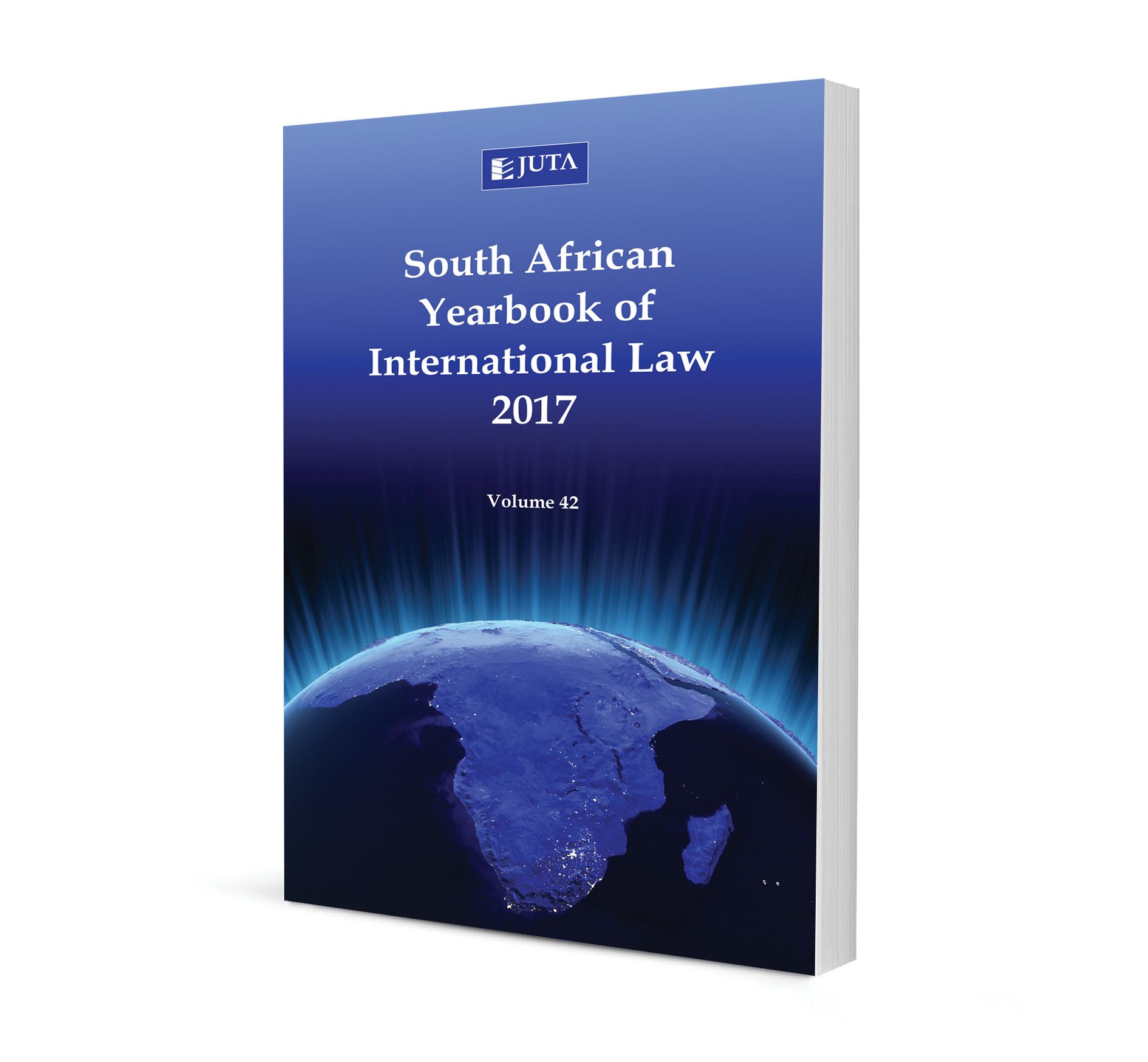Treaties

Treaties
Authors Rika van der Walt
ISSN: 2521-2583
Affiliations: None
Source: South African Yearbook of International Law, 2017, p. 355 – 366
Abstract
None

ISSN: 2521-2583
Affiliations: None
Source: South African Yearbook of International Law, 2017, p. 355 – 366
None

ISSN: 2521-2583
Affiliations: Attorney of the High Court of South Africa
Source: South African Yearbook of International Law, 2017, p. 343 – 351
None

ISSN: 2521-2583
Affiliations: Chief State Law Advisor (International Law)
Source: South African Yearbook of International Law, 2017, p. 320 – 340
None

ISSN: 2521-2583
Affiliations: Principal Legal Officer, United Nations Office of Legal Affairs, and Principal Assistant Secretary of the Sixth Committee and the International Law Commission
Source: South African Yearbook of International Law, 2017, p. 289 – 319
None

ISSN: 2521-2583
Affiliations: Professor of International Law, University of Pretoria. Member of the UN International Law Commission.
Source: South African Yearbook of International Law, 2017, p. 269 – 288
None

ISSN: 2521-2583
Affiliations: Professor, Department of Mercantile Law, College of Law, University of South Africa
Source: South African Yearbook of International Law, 2017, p. 220 – 265
In 2015, the OECD issued its 15 Action Measures to curtail Base Erosion and Profit Shifting (BEPS); which is intended to ensure that profits are taxed where the economic activities generating those profits are performed and where value is created. The 15 Action Measures contained BEPS measures pertaining to double taxation agreements (DTAs). Adopting these measures would require the renegotiation of thousands of DTAs that countries have entered into. The sheer number of the DTAs countries have entered into would make updating the current tax treaty network highly burdensome, time consuming and expensive. Under Action 15, the OECD developed a multilateral instrument (MLI)as a mechanism to swiftly implement the tax treaty BEPS Measures and would have the same effects as a simultaneous renegotiation of thousands of DTAs. This article seeks to explain the procedures, administration and interpretation of the MLI. It also considers the procedural, administrative, interpretational and political challenges that could impact on the effectiveness of the MLI from a developing country perspective. The article explains the pros and cons of some of the options to the MLI and it provides general recommendations regarding the choices that developing countries might consider when signing the MLI. Finally, it concludes by providing recommendations on the matters developing countries should be cautious about as they consider whether to sign the MLI.